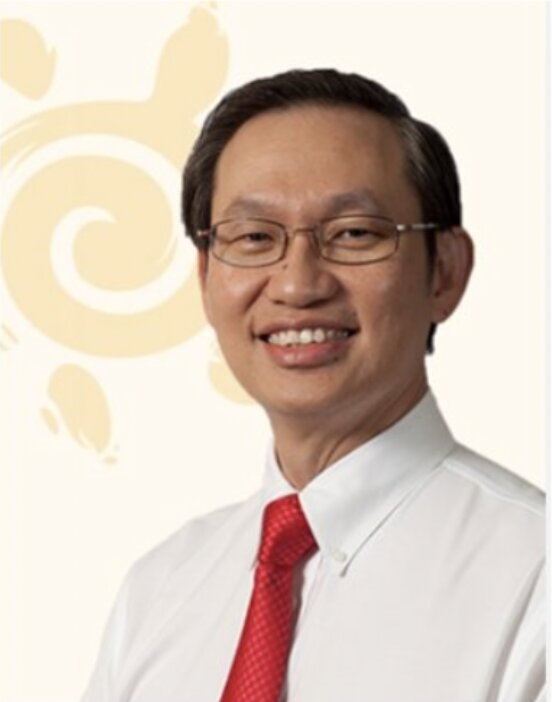
Early Detection is Still the Best Defense
Cancer remains a perennial national health priority in the Philippines, being consistently the third leading cause of morbidity and mortality after diseases of the heart and the vascular system. An estimated 189 of every 100,000 Filipinos are afflicted with cancer while four Filipinos die of cancer every hour or 96 cancer deaths every day.
The 2020 data from the Global Cancer Observatory (GCO) revealed that breast cancer leads the incidence among cancer sites in the country. Breast cancer accounts for 17.6% of cases of cancer in the population. The total number of breast cancer cases is projected to increase by nearly double the number by 2040. Females have a significantly higher risk (i.e., 100 times more) of having breast cancer but males are not exempted from it. One in 1,000 males gets breast cancer in his lifetime.
Managing Risk Factors
The good news is, like most cancers, breast cancer does not develop overnight. Women across the Philippines can take charge of their breast health. Equipping themselves with knowledge and information about breast cancer and general breast health is a major step in protecting oneself against cancer.

Dr. Ang Peng Tiam, Medical Director and Senior Consultant, Medical Oncology from Parkway Cancer Centre explained that breast cancer is widely perceived to be an untreatable illness and is often likened to a death sentence. “However, this is not necessarily so. Over the last 30 years, advances in cancer research have led to a better understanding of the disease at the molecular level, discovery of new treatments and improvements in medical technology.” Dr. Ang has helped many Filipinos who have sought treatment in Singapore. “I have always seen hope in many Filipino patients, and we are happy to have provided the best medical care possible for patients to win their fight against cancer.”
A first step in the right direction is to discern some common myths and misconceptions about the disease. Women with close relatives who have been diagnosed with breast cancer have a higher risk of developing the disease. However, a sizable percentage of women with no known family history of the disease have also been diagnosed with breast cancer. While there is a higher risk for those who have a history of the disease, it does not follow that breast cancer can be inherited.
There is also no significant proof that antiperspirants, deodorants, bras, and birth control pills increase the risk of breast cancer. Also, having a healthy lifestyle does not guarantee protection from breast cancer. It is true that regular exercise, consuming the right food, avoiding alcohol and smoking, and having good sleep habits could lower the risk of breast cancer, but they do not remove the risk altogether. The hard truth is, there is still no specific known cause of breast cancer, only risk factors.
Then, there is the usual dilemma of people diagnosed only when the cancer is at an advanced stage. Dr. Ang explained, “Many cancers are not diagnosed at earlier stages because they have no early symptoms or have symptoms that are non-specific. Some patients also ignore or deny their symptoms and do not want to see a doctor, for fear of being diagnosed with cancer. Others believe that cancer cannot be treated. We advise patients to seek proper medical care when they develop any symptom that persists for more than two weeks or when symptoms recur after getting better initially.”
Early Detection
In 2019, it was found that the survival rate of breast cancer in the Philippines is below 50% because the disease is still being diagnosed late in its course. Furthermore, poor access to breast and cervical screening, geographic disparities, and high out-of-pocket costs of care contribute to delayed diagnosis. There is a wide variety of symptoms for breast cancer, the most common of which being a painless lump in the breast area. At the same time, there have been patients who manifest no signs or symptoms at all. Early detection is still the main protection against the onset of cancer.
Dr. Wong Chiung Ing, a medical oncologist, said that breast cancer awareness is a necessary first step. She elaborated, “For me, breast cancer awareness is about looking after ourselves and taking charge of our own health. Women often take on many roles – daughter, mother, spouse, as well as juggling a busy career. It is therefore important to make sure that we are healthy first before we can look after others.”
In the very early stages of breast cancer, findings can only be discovered through regular health check ups and mammograms.
Dr. Wong prescribes the following schedule: Breast self-checks can begin after puberty to menopause: once every month, and once a week after the start of period when the breast tissues are less tender. For post-menopausal women, once every month, a date easy to remember e.g., first or last day of the month. Mammogram for women without symptoms and normal mammogram findings from the preceding year while annually for 40 to 49 years old, and every two years for women 50 years old and above.
Ultrasound scans are also useful in complementing these screenings, while 3D mammography is recommended for a more thorough examination of dense breast tissues.
Treatment Options
Treatment options such as chemotherapy, radiation therapy, hormonal therapy, targeted therapy, and immunotherapy are available to improve survival rates and the quality of life.
Since Parkway Cancer started 16 years ago in Singapore, the multidisciplinary medical team has dedicated itself to providing holistic care for patients around Asia. “We all strive to provide holistic care in our patients’ cancer journeys with our multidisciplinary approach,” said Dr. Wong. The centre has a comprehensive suite of treatment and improved techniques in pathology have allowed for more specific subtyping of cancers at the molecular level. These advances have led to new and innovative ways to manage cancer.
Dr. Ang said, “The battle against cancer is not an easy one but we are here to guide, support, care for and walk the journey with cancer patients.”

